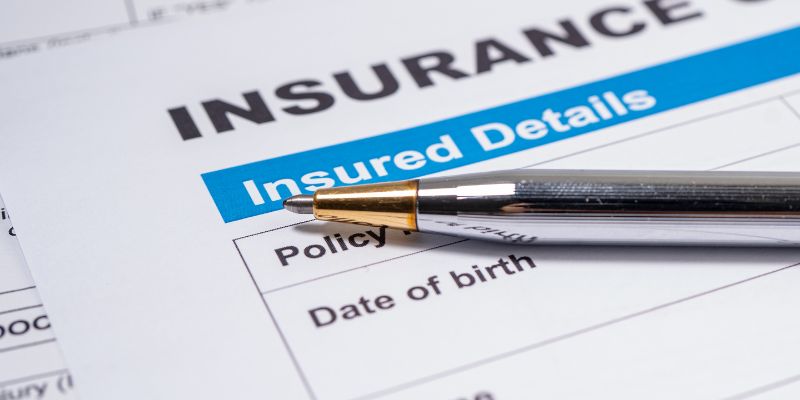Protecting your financial investment with the right insurance is important to see if you've just closed on your first home or have been making mortgage payments for the last years. If you are a new homeowner, you may have recently received an offer for mortgage protection insurance.
It could have occurred not too long ago. You may receive it as a postcard, or it might pretend to come from your lender. While both mortgage protection and term life insurance can help cover your mortgage balance in the case of your death, they serve different purposes.
Today, we will analyze each of these possibilities so you can make an informed decision. So, let's begin without wasting another second!

What Is Mortgage Protection Insurance?
Anyone who has recently finalized a mortgage or home equity line of credit has probably been flooded with offers for mortgage protection insurance. These are sometimes disguised as official correspondence from your mortgage lender, although providing scarce detail about the loan in question.
Mortgage protection insurance (MPI) is similar to life insurance in that it is designed to settle your mortgage in the case of death. Depending on the policy, some disability insurance will even pay your mortgage if you become disabled (often for a short time). Typically, the insurance has a falling term, meaning you pay off your mortgage as time passes.
The amount you get from the insurer drops while your premium stays the same. MPI is different from private mortgage insurance (PMI), which only covers the lender in the event of a default. Your loved ones would still be responsible for paying off the loan sum if you had PMI and died while still owing money.

What Is Term Life Insurance?
The process of purchasing term life insurance is not overly complicated. It is a kind of insurance policy that covers a certain amount of time, such as 15, 20, or 30 years. It provides a tax-free death payout if you pass away during the period covered by the policy.
The recipients are free to put the death benefit money toward any purpose they see fit, including paying off their mortgages, helping their children pay for college, or paying for their funerals. In most cases, the premium and the payout do not change at any point during the duration of the policy.
Difference Between Mortgage Protection Insurance And Term Life Insurance
Mortgage insurance differs most significantly from life insurance. Every subset of life insurance was created to address a particular risk, which is why many kinds of life insurance exist. The purpose of life insurance for some is to provide financial security for their loved ones in the event of their demise while the policy is still in effect.
Some people need insurance to help pay off their mortgage if anything terrible happens. Each person has unique experiences and circumstances, so they must take the time to investigate all of their options. The beneficiary will get the death benefit if you die away while the policy is still in effect.
It may go toward an interest-only mortgage or be used for the comfortable standard of living you've established for yourself and your family. Your premiums and coverage level will remain the same until you cancel or make any changes to your policy.
Decreasing Since life insurance protects a mortgage that is paid off, the coverage often decreases as the mortgage balance is paid down. Understand that life insurance has no monetary value unless a claim is made on the policy and should not be treated.
Which Is Best, Mortgage Life Insurance Or Term Life Insurance?
Mortgage life insurance and term life insurance offer a way to pay the mortgage on your death. You must make consistent premium payments for any insurance if you want to keep your coverage active.
However, if you choose to insure your mortgage with life insurance, the policy's beneficiary will be your mortgage lender rather than the beneficiaries you name. The remaining sum is paid to your lender if you die away while still owing money on your mortgage.
Your mortgage will be paid off, but none of the money will go to your survivors or loved ones if you choose this option. In addition, basic term insurance features a benefit and premium that remain unchanged throughout the policy.
If you have mortgage life insurance, your premiums can stay the same. But the value of your policy might go down as the years pass and the principal balance of your loan gets paid off.
Important Things to Think About Before Deciding
- MPI gives guaranteed approval. Even if you have a serious health condition or work in an occupation that puts your health at risk, there is a 100% chance that you will be accepted. You will not be required to undergo any medical tests or laboratory testing.
- Beneficiaries of the MPI are not provided with any choices. In addition to the mortgage payment, the insurance covers no additional costs. It indicates that your family cannot use the cash for any reason other than what has been stated.
- The standard term provides a fixed price guarantee for the coverage period and will not increase or decrease. A great number of MPI insurance prices are susceptible to further adjustments.
- The issue ages for term life insurance policies are often more adjustable than those of MPI policies. For anyone older than 45 years old, some insurance companies will not provide MPI coverage for the full 30 years.
Conclusion:
Investigate the firm thoroughly before buying mortgage protection life insurance from them. If you don't know much about them or suspect they could use misleading business methods. If there are a lot of customer grievances and worries, you should seek mortgage protection insurance elsewhere or consider getting another kind of protection.
A term life insurance policy is probably preferable if you want to guarantee that your loved ones will be provided for even if something happens to you and your house. If you want, the payment can be put toward costs other than your mortgage.



